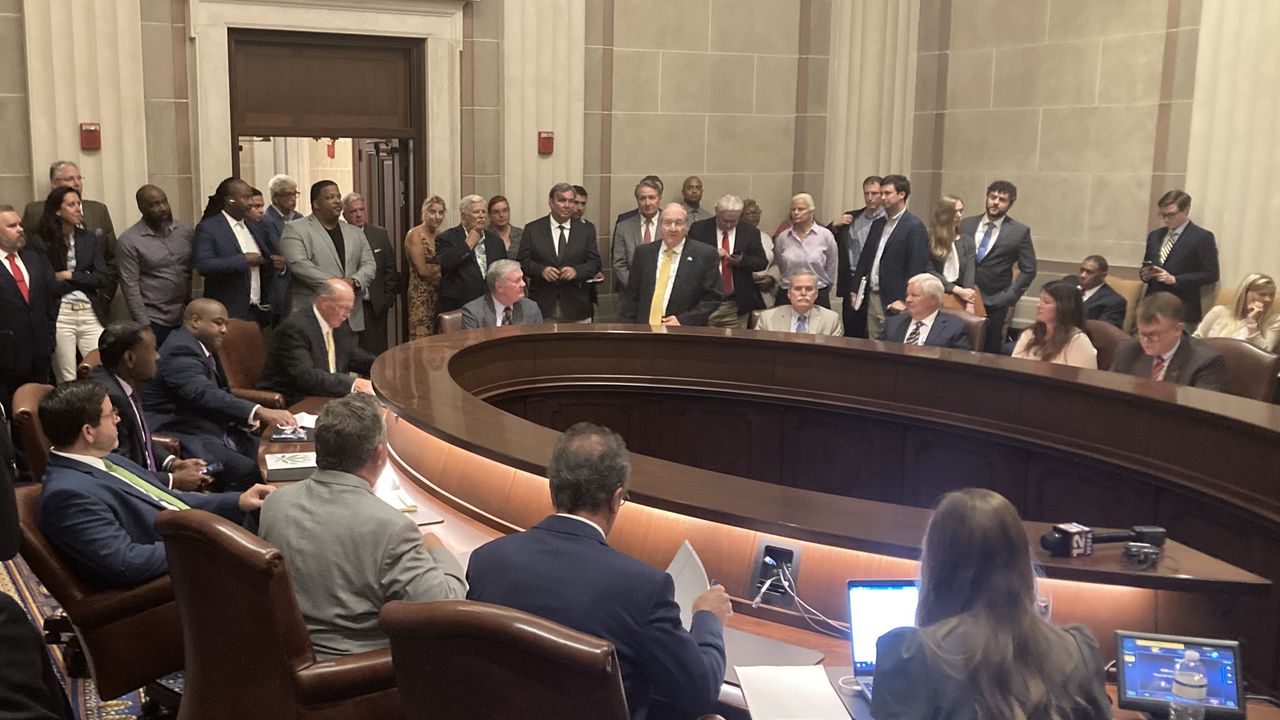Agency plans to redo medical marijuana licenses on August 10
The Alabama Medical Cannabis Commission plans to award business licenses at a meeting on August 10, officials with the AMCC said at a court hearing Thursday afternoon, replacing the selections it announced last month.
“That’s our target date,” AMCC executive director John McMillan said after the hearing. “We’re pretty confident with that.”
William Webster, an attorney for the AMCC, told Montgomery County Circuit Judge James Anderson the plan is to void decisions made earlier and “set everyone back on a level playing field.”
On June 12, the AMCC awarded licenses to 21 companies to cultivate, process, transport, test, and dispense medical marijuana products. The companies would be Alabama’s startup participants in an industry authorized by the Legislature two years ago to make medical cannabis products available to patients who receive recommendations from certified physicians.
Ninety companies applied for licenses. The AMCC hired the University of South Alabama to help rank the applicants, and the university recruited evaluators who assigned scores.
But on June 16, the AMCC announced it would not issue the 21 licenses announced four days earlier because it had discovered potential inconsistences in how the applications were scored. The AMCC has not released the scores.
At Thursday’s court hearing, Webster said the problems were in how the scores were tabulated. Webster said the AMCC has hired an accounting firm to review and verify the scores. Webster said the firm should report its findings to the AMCC by the end of July.
Prior to that August 10 meeting, the AMCC will meet on July 10 and discuss more about what has happened with the licensing process and how to proceed, McMillan said. The original purpose of the July 10 meeting was for the AMCC to issue the licenses to the companies that were awarded licenses on June 8. But those awards are no longer valid.
The licensing issues are in court because of lawsuits filed by two companies that applied for licenses but did not receive them — Alabama Always LLC and Hornet Medicinals LLC. On Wednesday, Anderson allowed two more companies, Specialty Medical Products of Alabama, and CRC of Alabama, to join the case.
Anderson kept Thursday’s court hearing informal and said his intent is to give the AMCC a chance to correct the problems. Anderson issued an order on June 23 that suspended the licensing process, an order that affirms what the AMCC voted to do at its June 16 meeting. Anderson said Thursday he was willing to extend his order until the August 10 meeting.
Alabama Always, in its complaint against the AMCC, raises several concerns, including the reliance on the third-party evaluators in selecting the licensees, the lack of public discussion by the AMCC on the license decisions, and the AMCC’s decision not to visit the sites of applicants as part of their evaluations. Alabama Always applied for an integrated license to cultivate, process, and dispense the products. The company says it has spent $5 million developing its facility in west Montgomery and would be able to have products in its dispensaries in 120 days or less if it received a license.
On Thursday, McMillan defended the AMCC’s process. He said the 13 commissioners, who were appointed by the governor and other public officials, reviewed the applications independently of the third-party evaluators recruited by USA.
“A few of the commissioners looked at every one of the applications,” McMillan said. “We divided up the applicants and assigned the applications in different categories to teams of commissioners. And so, we wanted to be sure that every single application was reviewed by somebody who could comment in deliberations on their opinion of that applicant.”
As for whether the commissioners exercised their own judgment or relied on the scores assigned by the evaluators, McMillan said, “The final decision and evaluation was the commissioners’. The scoring that we are working on and verifying now certainly played a role, yes.”
As for not making site visits to the applicants, McMillan said the plan was to visit the applicants after the licenses were awarded but before they were issued. McMillan said it was not practical to visit the sites of 90 applicants, which he said would have been a total of more than 300 sites.
“The site visits were intended by the Legislature to be in that interim time so that we can be sure that the applicants can live up to what they committed to in their applications,” McMillan said.
